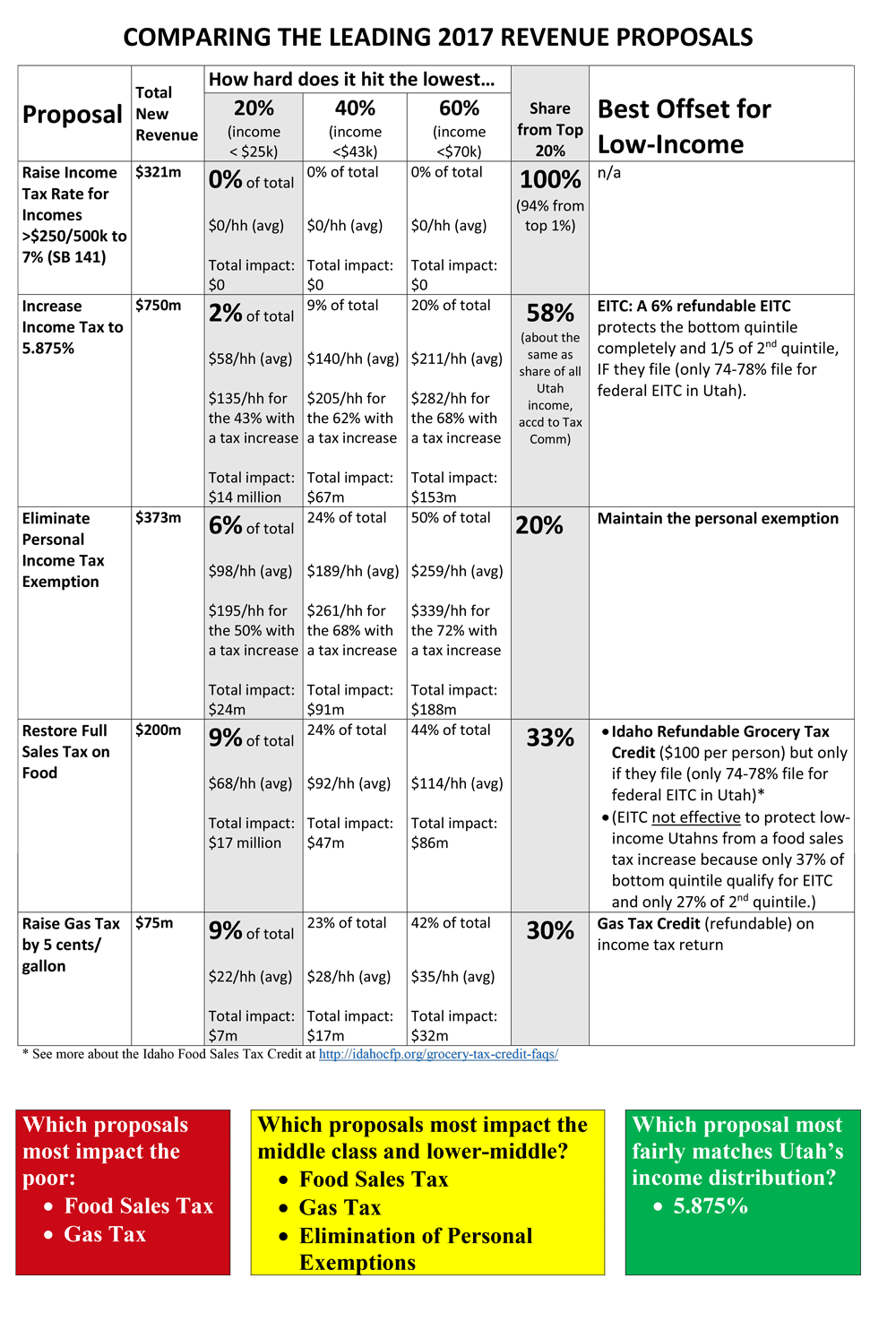Open Letter to the Utah Legislature
February 23, 2017
Dear Senators and Representatives:
We, the undersigned organizations, urge you to consider the impact of any tax reform proposal on Utah’s most vulnerable populations.
We wish to make two important points in this regard:
- We support the additional public revenues that could result from tax reform because Utah would benefit from increasing our investment in our most vulnerable populations.
- Tax reform that increases the burden on low-income sectors of our population will do more harm than good for people struggling to pay for the basic necessities of life.
New Revenues Are Needed
The Utah Foundation has found that Utah’s overall tax burden is at a multi-decade low. As a result, funding for critically needed public services has suffered in many areas, including:
- K-12 education – where we remain last in the nation in per-pupil funding
- Pre-K – where Utah remains behind the nation in the percentage of at-risk children who have access to high-quality Pre-K.
- Higher education – where tuition continues to climb much faster than wages.
- Drug treatment and mental health – where underinvestment threatens to undermine criminal justice reform.
- Affordable housing – where state funding has not kept up with the effects of inflation, while rents rise faster than wages.
- Homelessness – though we are encouraged to see the emerging consensus on the urgency of action.
- Disability services – where starting wages for disabilities service workers remain below levels needed to reduce high turnover.
- Health care – where Utah children are uninsured at a higher rate than nationally and Hispanic children at a higher rate than any other state.
Low-Income Populations Should Be Held Harmless by Tax Reform
No one should be taxed into or deeper into poverty. So many of the individuals and families that we work with already struggle to keep a roof over their heads and food on the table. They already pay sales, payroll, and property taxes (either directly or indirectly through their rent), and many pay income taxes as well. To ask them to pay more, especially at a time of growing inequality and a minimum wage that loses value every year, is unfair and unjustifiable.
We urge the Legislature to consider the financial barriers faced by Utah’s most vulnerable populations as you grapple with the difficult challenge of reforming Utah’s tax structure.
|
AARP Utah American Academy of Pediatrics - Utah Catholic Diocese of Salt Lake City Peace and Justice Commission Community Action Partnership of Utah Comunidades Unidas |
Disability Law Center League of Women Voters of Utah Legislative Coalition for People with Disabilities Utah Community Action |
NAMI - Utah Utah Housing Coalition Utahns Against Hunger Voices for Utah Children |
Printer-friendly Version:
![]() Open Letter to the Utah Legislature: Tax Reform and Utah's Most Vulnerable Populations
Open Letter to the Utah Legislature: Tax Reform and Utah's Most Vulnerable Populations
Image Credit: Amanda Mills, Centers for Disease Control and Prevention
For 30 years now, Voices for Utah Children has called on our state, federal and local leaders to put children’s needs first. But the work is not done. The children of 30 years ago now have children of their own. Too many of these children are growing up in poverty, without access to healthcare or quality educational opportunities.
How can you be involved?
Make a tax-deductible donation to Voices for Utah Children—or join our Network with a monthly donation of $20 or more. Network membership includes complimentary admission to Network events with food, socializing, and opportunity to meet child advocacy experts. And don't forget to join our listserv to stay informed!
We look forward to the future of Voices for Utah Children and we hope you will be a part of our next 30 years.
Special thanks to American Express, our "Making a Difference All Year Long" sponsor. 








